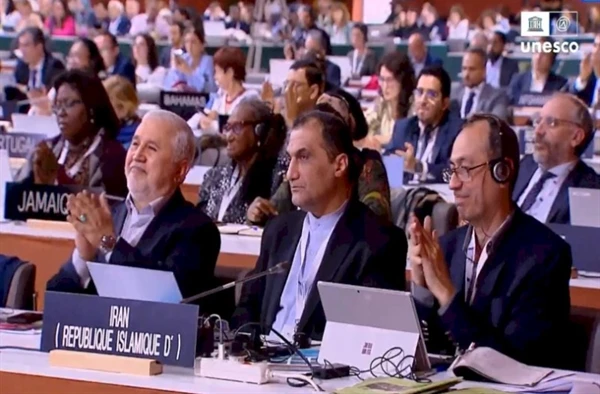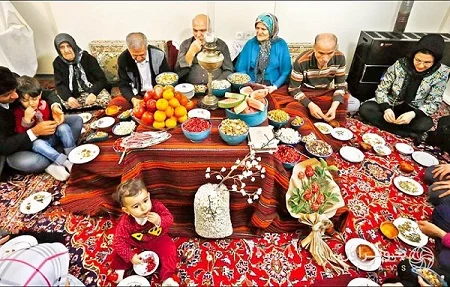Backed by India, Iran’s ‘Yalda/Chella’ has been added as the new inscription on UNESCO’s list of intangible cultural heritage adding yet another chapter in the age-old friendship between two ancient neighbouring civilizations.
The decision was taken in the Moroccan capital Rabat on Wednesday where the 17th session of the Intangible Cultural Heritage Committee of the United Nations Educational, Scientific and Cultural Organization (UNESCO) is currently being held.
Composed of 24 representatives elected from among the 180 States Parties to the Convention for the Safeguarding of the Intangible Cultural Heritage, and chaired this year by the Kingdom of Morocco, the Committee examined 56 applications for inscription.
The Convention promotes the safeguarding of knowledge and skills necessary for traditional craftsmanship and cultural practices transmitted from generation to generation, such as oral traditions, performing arts, social practices, rituals, and festive events, as well as knowledge and practices concerning nature and the universe.
Shared jointly between Iran and Afghanistan, ‘Yalda/Chellla’ was registered as the 19th intangible cultural heritage element.
Yalda Night (Shab-e Chelleh) is one of the most celebrated Persian traditional events which marks the longest night of the year (December 21). Families gather at the houses of elders and sit around a table adorned with a series of symbolic objects and foods: a lamp to symbolize light, water to represent cleanliness, and red fruits such as pomegranates, watermelons, beetroots, jujube and grapes to symbolize warmth. It was officially added to Iran’s List of National Treasures in a special ceremony in 2008
India supported the Iranian application citing the time-tested, deep-rooted and civilizational contacts of kinship and culture with the region.
“India supports her civilisational links with the people of Iran and we are happy to support Iran’s transnational nomination ‘Yalda/Chella’ for inscription to the ICH. Spoken a line of support in the Persian (Farsi) language,” tweeted Vishal V Sharma, the Permanent Representative of India to UNESCO.
#India supports her civilisational links with the people of #Iran and we are happy to support Iran’s transnational nomination “Yalda/Chella” for inscription to the #ICH. Spoken a line of support in the #Persian (#Farsi) language

@India_in_Iran pic.twitter.com/PFuORY5Crt
— Vishal V. Sharma
(@VishalVSharma7) November 30, 2022
Other than ‘Yalda/Chella’, Iran also presented five other cases for global registration at the meeting which included silkworm breeding and traditional production of silk for weaving (jointly with Afghanistan, Azerbaijan, Turkey, Tajikistan, Turkmenistan and Uzbekistan), Turkmen needlework or Turkmen embroidery (shared with Turkmenistan), the art of making and playing oud (shared with Syria), the art of making and playing rebab (shared with Tajikistan and Uzbekistan) and Mehrgan ceremony (shared with Tajikistan).
Iran’s joint nomination with Syria on “the art of making and playing the oud” was also registered as an element on the intangible cultural heritage.
The oud is a stringed instrument with a long history in Iran and the Middle East and is one of the most important Iranian percussion instruments, which is used in classical Iranian music groups.

The presence of the oud instrument from ancient times to the modern era in prominent figures, the court of poets, and paintings is a reminder of the convergence and harmony between ethnic groups and nationalities that have lived together for more than 2,000 years.
The Committee received a total of 46 requests concerning the Representative List of the Intangible Cultural Heritage of Humanity; 4 requests for inscription on the List of Intangible Cultural Heritage in Need of Urgent Safeguarding and 5 nominations to the Register of Good Safeguarding Practices.
Also Read: Korea, Japan scramble jets as Russian and Chinese bombers come close




















